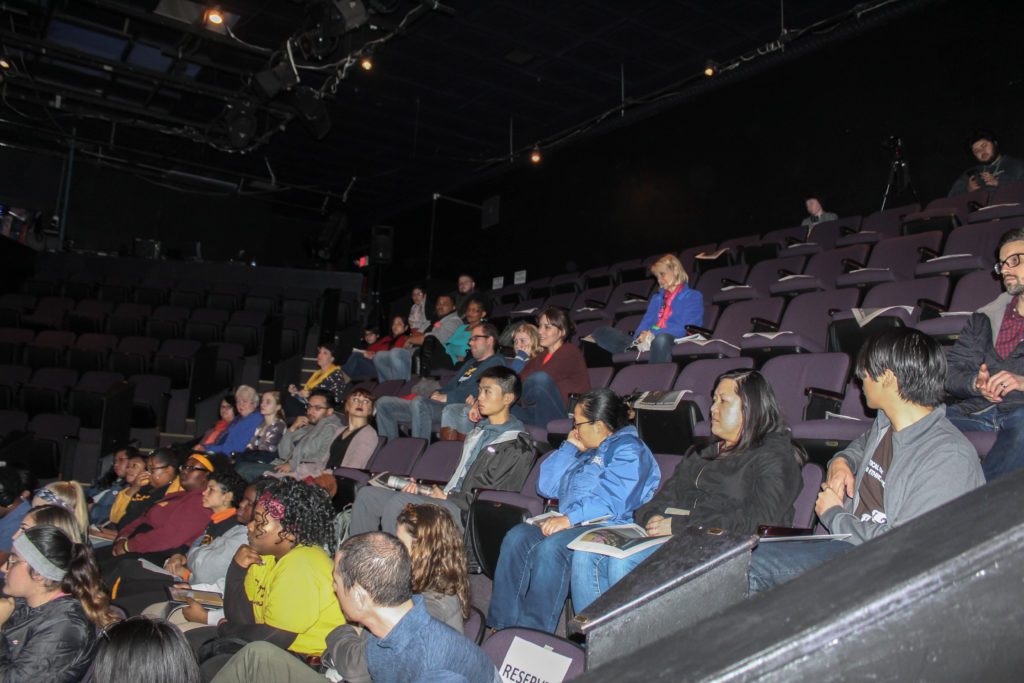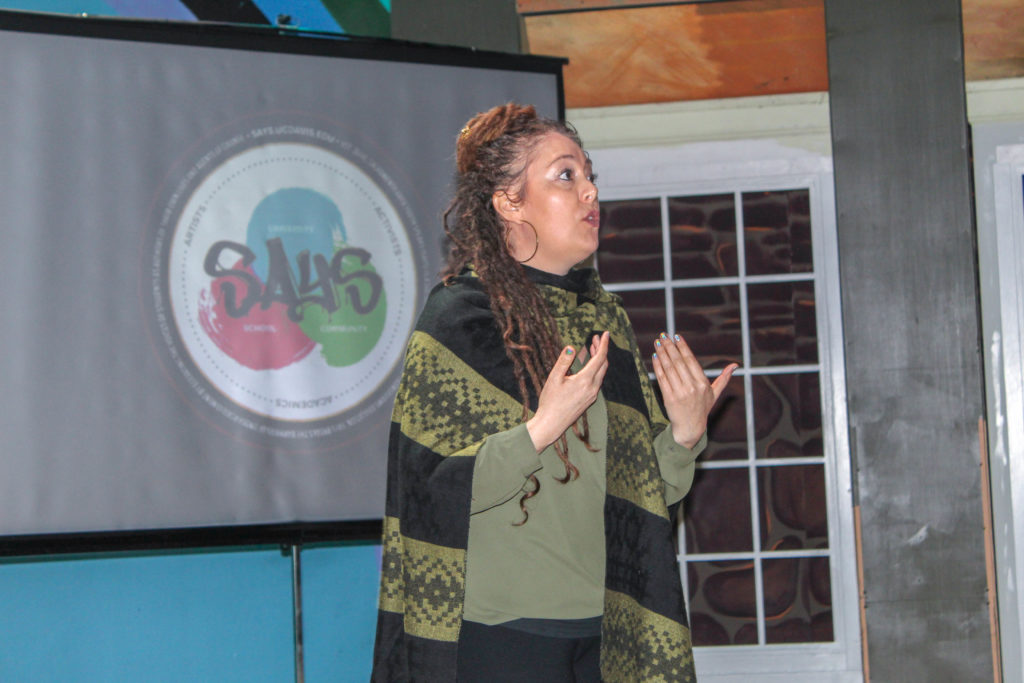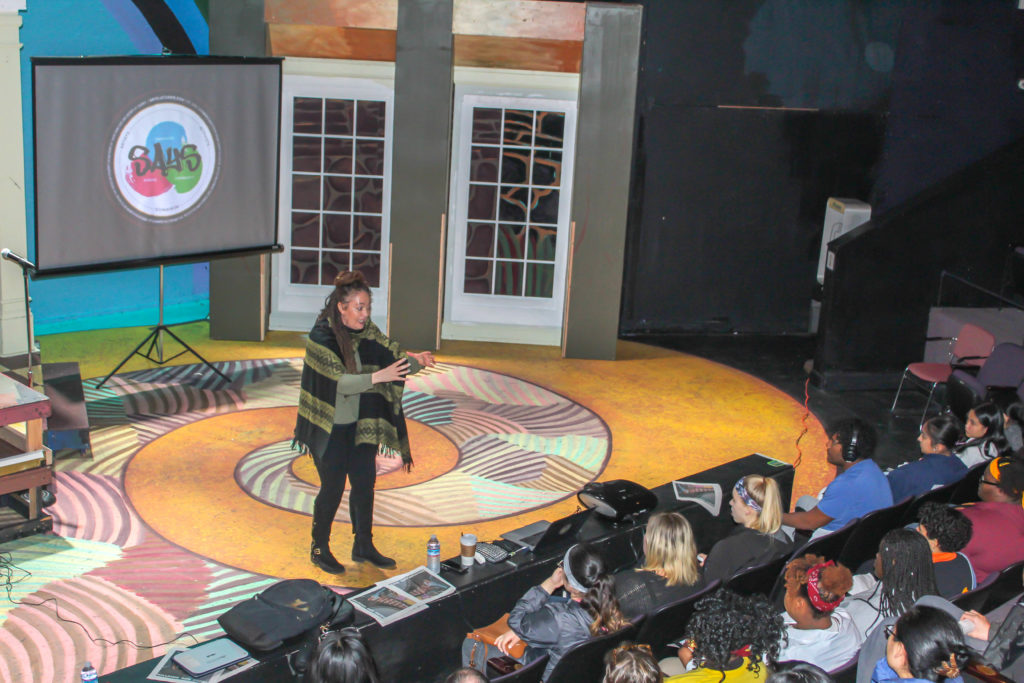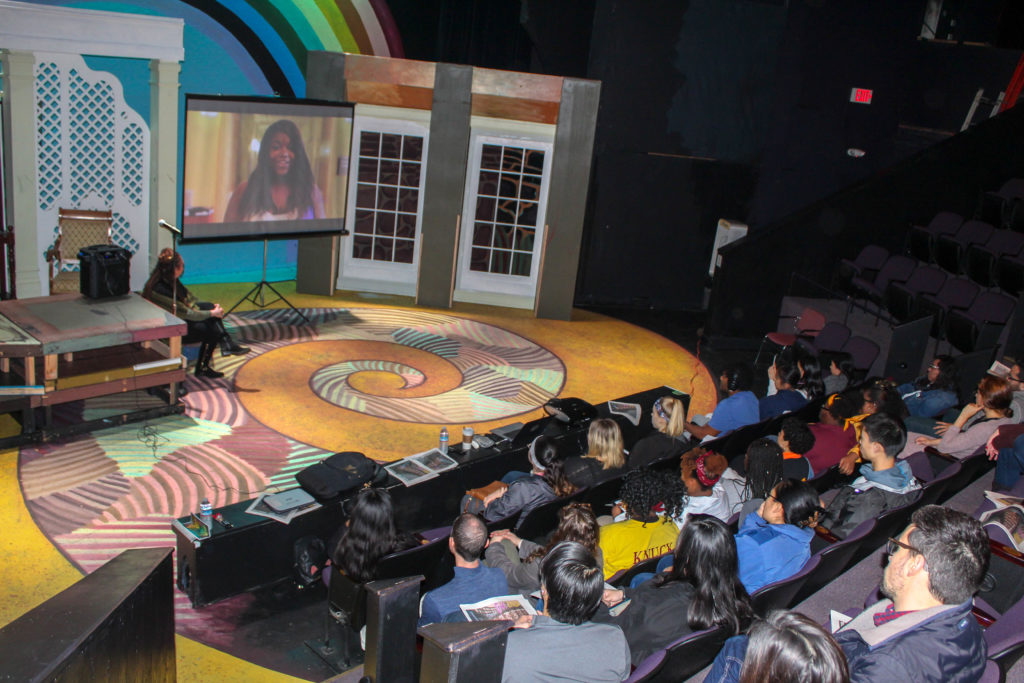Upon the life and history of Dr. Vajra Watson, one word comes into play: a hustler. But although hustler is shown to give a large part of the energy presented in her aura, resilient, empowering, and incredible also display a true description of the professor and activist.
From a young age, Watson has been passionate about the social inequality she’s seen before her, so she decided to use her resources; in order to fulfill her goals, Watson pulled her way through the tightropes of change and called for a kind of justice not presented enough in today’s society. Watson stands now as the founder of SAYS (Sacramento Area Youth Speaks), which “pairs community-based poet educators with classroom teachers” to teach kids how to become excited about education. She is also the author of two books (Transformative Schooling: Towards Racial Equity in Education and Learning to Liberate: Community-Based Solutions to the Crisis in Urban Education) which feature research and information involving social injustice in education. Since July 2008, she has included the title of Director of Research and Policy for Equity at UC Davis in a long list of her achievements. It is the perseverance prevalent to her life that has led Vajra Watson to be the successful woman she is now, but her story never seems to stop, no matter where or how far she ventures.

Students and residents of Merced gathered at the Playhouse to hear Vajra Watson. Photo by Karina Vivas
In high school, Vajra Watson didn’t have it easy. Growing up poor, Vajra was able to maintain very good grades at Berkeley High School, which allowed her to receive a full scholarship to UC Berkeley under the regards of the most needs-based student out of her entire graduating class. During her undergraduate education, Watson strived for the best, calling dean after dean to fill her schedule to the utmost capacity. In just three years, Vajra graduated and decided to take a step back, but only for a little while. When she later decided to get her master’s degree, Vajra contemplated going back to UC Berkeley, but a mentor of hers suggested otherwise. Vajra says her mentor told her if she wanted to succeed, she needed to dig deep, so Vajra applied and was accepted to two schools on the East coast: Columbia University and Harvard.
When Vajra visited both colleges, she wasn’t expecting anything. She believed she was going to go to Columbia already because she loved New York and didn’t need to think twice about it. But after attending Harvard for only a day, Watson immersed herself into the culture of social activism taught at the school and immediately fell in love. She believes Pedro Noguera and Sara Lawrence-Lightfoot were huge influences in the “environment of rigor and research” she experienced. She received her master’s degree from Harvard and decided to earn her doctorate while birthing and raising two children. Vajra was always told “education was her hustle” and she believed it wholeheartedly.
After graduating from Harvard, Watson started working at UC Davis as the Director of Education partnerships. Looking back, she advises the youth to pace themselves and be sure to celebrate what one has achieved. Vajra also fully recognizes the privileges she has now than when she was younger and has never used it to distinguish herself from those around her as a means of social hierarchy.
She established SAYS, the movement known for its involvement of the “streets and the school”, teaching education in a way that raises many young minds of those fallen in the cracks of the education system. Even though it started as a group of five students, the program has grown to thousands of participants each year. In a piece Watson wrote about SAYS, she exclaims, “The essence of SAYS is the unabashed, truth-telling, multilingual voices of young people who are courageously creating spaces that transform lives.”
Over twenty years later, Vajra’s confidence and hustle has not changed. Her style of dress and piercing green eyes give her a cultured look, and her exuberance never seems to waver. Watson’s speaking abilities are also impeccable, as she captivates any room she chooses to share her intelligence with.
She is currently working on two new books about “radical research methodologies” and “deconstructing whiteness.” When asked why she feels it is important to do the work that she does she replies, “Young people are so brilliant and brave – I sincerely believe in youth leaderships for social transformation.” She believes everything in life happens for a reason and does not regret anything she has had to endure. Vajra Watson is a voice unlike any other and a true force to be reckoned with. It is in her work that one can find the resiliency and relentless generosity she presents to those around her. Vajra Watson is a doer and not one drop short of remarkable.
Editor’s note: This story was updated on May 30 to correct some inaccuracies.
 Translate
Translate



